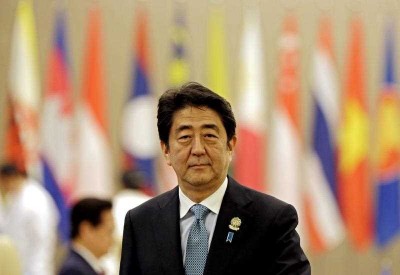Phnom Penh, 17 May 2012 — The Cambodian Human Rights and Development Association (ADHOC) strongly condemns the shooting dead of a 14-year old girl yesterday, relating to a long-standing land dispute in Kratie province. Heng Chentha was fatally wounded by armed forces in Broma village, Kampong Domrey commune, Chhlong district, as villagers were protesting in Snuol district against forced eviction from the homes and farmland they had occupied for years. Cambodian authorities claim that the disputed land is state-owned; however, evidence suggests that it may have been granted as a concession to Casotim, a Russian company which plans to set up a rubber plantation.
Since the beginning of 2012, there have been at least four instances, including the above, in which security or military forces have used fire arms against citizens defending their fundamental rights and freedoms. This most recent tragedy comes less than a month after Chut Wutty, a prominent environmental activist, was killed in Koh Kong province. The fact that yesterday’s protest turned violent is not an excuse for the use of such disproportionate force against civilians. Many of them, including the victim, were children and were not at the site of the protest. ADHOC therefore calls on the authorities to thoroughly and impartially investigate the circumstances of the shooting and to hold perpetrators responsible.
Furthermore, ADHOC reminds Cambodian authorities that they are under legal obligation to protect citizens’ right to adequate housing, which entails a duty to engage in genuine, meaningful consultations with affected people prior to implementing projects or granting concessions; to explore feasible alternatives; to carry out social and environmental impact assessment studies; and to provide fair compensation to evicted citizens. This obligation also entails, as required by several United Nations bodies, a duty to develop clear guidelines for evictions and resettlement and to adopt a proper binding framework which includes guarantees of due process and effective judicial remedies.
Allegations that yesterday’s protesters intended to create a “self-governing” zone lack supporting evidence and are verging on nonsensical. Villagers had no military or security forces and no administrative structures to control the area. They were simply protecting their livelihoods. Conversely, it is the private companies, having been awarded concessions by the state, which often end up establishing autonomous zones and preventing law enforcement officers from entering them.
As usual,[1] Cambodian authorities claim Heng Chentha was “accidentally shot”, suggesting that no one will be held responsible. ADHOC would like to emphasize that, in a functioning democracy, it should not be possible for perpetrators to get away with the killing of a child so easily. Although Cambodian authorities consistently use the same excuse to justify shootings, they are now, at the very least, under explicit obligation to provide training to law enforcement officers on the proper use of firearms and to launch investigations into the chain of command in all similar cases. All perpetrators must be held accountable, regardless of their rank or social standing.
In addition, a thorough investigation must be carried out to establish why and how the victim was shot, even though she was not at the scene of the protest.
Pursuant to orders from Prime Minister Hun Sen, Cambodian authorities must facilitate satisfactory resolution of all cases of conflict between private companies and citizens. This involves relying on existing institutions, such as the various Cadastral Commissions, courts and the National Authority for Land Dispute Resolution.
Following the United Nations Special Rapporteur on Cambodia Surya Subedi’s fact-finding mission, and in a year when Cambodia is chairing the ASEAN Summit and seeking membership in the UN Security Council, ADHOC reminds the Cambodian government that their actions are under international scrutiny. Respect for human rights and the rule of law, as well as the fight against impunity, are standards against which Cambodia’s application for membership in international decision-making institutions will be assessed.
The growing cycle of violence related to land and natural resources rights demonstrates that the current official policies are unsustainable, as more and more citizens are deprived of their rights and livelihoods, and less and less land is available for future generations. Without a clear political will to address all land and natural resources-related issues, which includes respect for the rule of law and a fairer distribution of the benefits and burdens of development policies, it is likely that violence will continue to escalate.
For more information, please contact:
Mr. Ny Chakrya, Head of Monitoring Section at ADHOC: 011 274 959
Mr. Nicolas Agostini, Technical Assistant: 078 405 024
Ms. Orla Kelly, Technical Assistant: 067 727 025
[1] The same excuse has been used after the shooting at Svay Rieng Special Economic Zone (February 2012) and the killing of Chut Wutty (April 2012).


